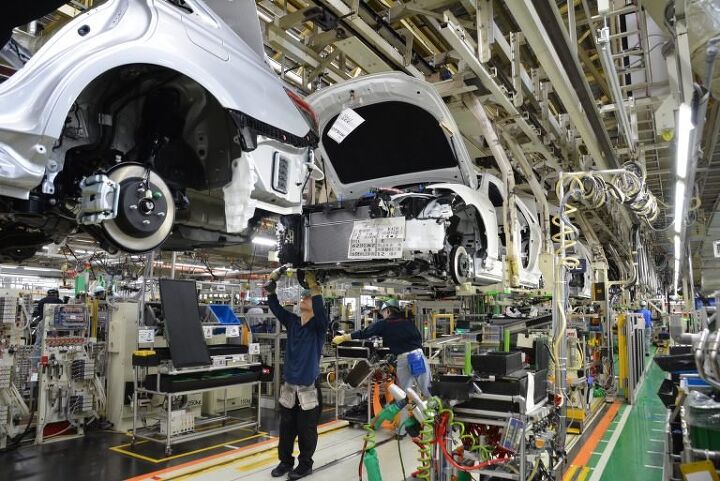#Virus
Opinion: Automakers Are Overstepping Their Boundaries
General Motors now requires salaried employees operating in the United States to disclose their coronavirus vaccination status. As confirmed by the automaker on Thursday, the decision is supposed to help the company determine what percentage of its own workforce is vaccinated so it can make better decisions about which safety protocols to implement. But your author is under the assumption that “as many as possible” will always be the preferred answer.
Earlier in the month, GM forced all salaried employees to disclose whether or not they were immunized for COVID-19 using the automaker’s internal network. Those answering to the affirmative were required to submit proof of vaccination by last Monday. But it sounds as though the manufacturer is just getting warmed up for more invasive activities.
Ford Postpones On-Site Work Until 2022, Considers Vaccine Mandates
On Wednesday, Ford Motor Co. told employees that it would delay plans for on-site work due to coronavirus concerns relating to the delta variant. Non-site-dependent staff are being told they stay home for the rest of 2021, while line workers will still be required to come in so long as there’s a job to be done — creating a dichotomy between white and blue-collar workers.
While Ford has encouraged some teams to come back to the office for various projects, it has repeatedly delayed its return-to-work timeline. Workers now being told to stay home until 2022 were previously informed they’d be coming back to the office in October. Before that, everyone thought it would be business as usual by the summer. Now the company is adopting a policy that has most people staying home even after 2022 as often as possible while it considers mandating vaccines.
Japanese Automakers Stand to Lose $1.6 Billion From Coronavirus: Analysts
Coronavirus outbreaks are shrinking sales expectations around the globe, but it’s Asia that has the most to lose. We’ve already seen rolling reports of the Chinese market’s virus-related decline — an affliction that’s spilling over into neighboring regions as more people fall ill and others stay home to avoid contagion. Employees, parts, and customers are all in short supply.
Goldman Sachs now predicts global sales will decline 3.5 percent in 2020. It’s a considerably more foreboding estimate than the 0.3-percent contraction predicted just last month, and the decline is presumed to hit Japan the hardest — after China, of course.
Computer Crashes, Car Crashes, People Die
Security experts told Reuters that car computers “are vulnerable to hacks by attackers looking to steal cars, eavesdrop on conversations, or even harm passengers by causing vehicles to crash” and that automakers have failed to protect these systems.
“You can definitely kill people,” said John Bumgarner, chief technology officer of the U.S. Cyber Consequences Unit told the wire service.



















Recent Comments